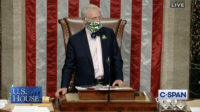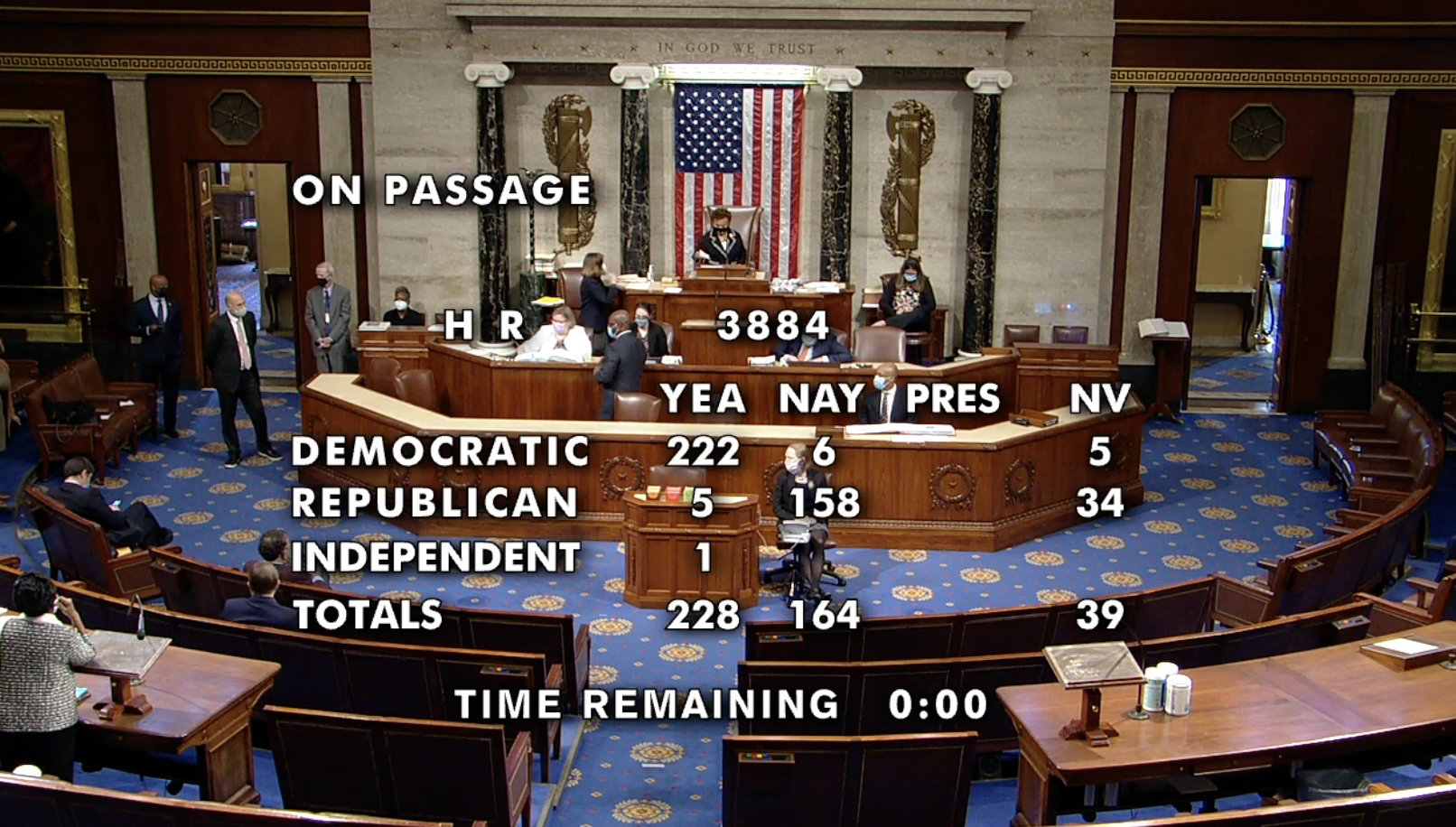On Friday, December 4, 2020, the US House of Representatives passed the Marijuana Opportunity Reinvestment and Expungement Act of 2019 (the MORE Act), which would effectively legalize cannabis by removing it from the Controlled Substances Act. The bill (H.R. 3884) has several key components:
- Most importantly, the bill would remove cannabis from the list of controlled substances in the Controlled Substances Act, as well as other federal legislation such as the National Forest System Drug Control Act of 1986. This would effectively end many of the obstacles created by the federal illegality of cannabis such as the lack of access to banking, tax consequences such as 280E, adverse immigration impacts and threats of federal criminal enforcement.

Rep. Earl Blumenauer (D-OR) donning his cannabis mask as he presides over the Congress - Second, not only does the bill preclude future prosecution for cannabis-related crimes, the bill is designed to be retroactive and would provide for the expungement of past non-violent cannabis offenses.
- The bill creates a prescribed excise tax on cannabis and cannabis products. The funds collected from the taxes would be channeled into opportunity and reinvestment programs.
- A Community Reinvestment Grant Program would be established aimed at the provision of services for “individuals most adversely impacted by the War on Drugs,” such as job training, education, literacy programs, mentoring, and substance use treatment programs;
- A Cannabis Opportunity Program would be established providing state funds for small business loans in the cannabis industry targeted at social equity candidates; and
- An Equitable Licensing Grant Program providing funds for states to implement equitable cannabis licensing programs aimed at minimizing “barriers to cannabis licensing and employment for individuals most adversely impacted by the War on Drugs.”
- The bill would require all cannabis producers to obtain a federal permit. Cannabis businesses would need to be licensed at the state, local, and federal levels to operate.
This MORE Act is a substantial step in cannabis legislation. Reactions to the proposed legislation have been mixed. While the bill does include some measures aimed at social equity, critics of the bill claim it does not go far enough. Similarly, while the bill includes a federal permitting provision, this would be the beginning of a nascent federal regulatory scheme.
What does this mean for your business?
While this bill passed in the US House of Representatives, it would still need to pass in the U.S. Senate this term, which by most accounts does not seem likely. However, the passage of this bill signifies the progress that has been made and provides insight on what further legislation may look like.



